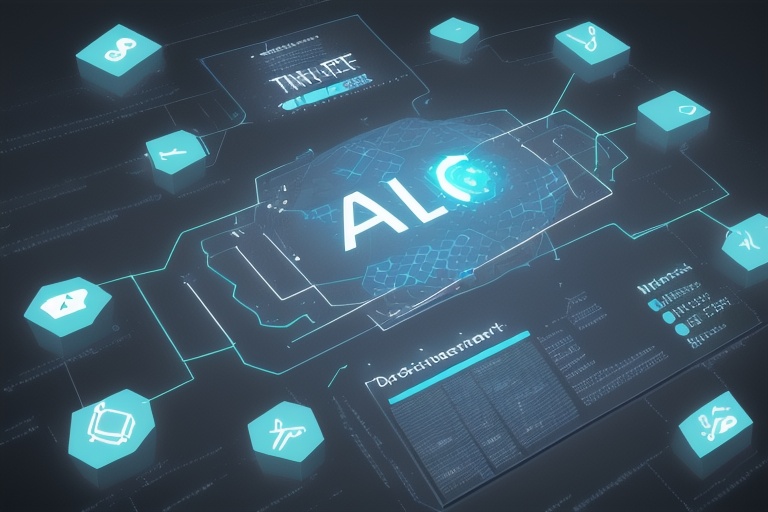Artificial intelligence (AI) and machine learning (ML) are no longer just buzzwords—they are powerful forces that promise to revolutionize the healthcare domain. With the rapid pace of technological advancements, AI stands at the forefront of a new era in medicine. As we embark on this journey, it's essential to understand both the potential impact and the challenges posed by these technologies.
Artificial intelligence (AI) and machine learning (ML) are no longer just buzzwords—they are powerful forces that promise to revolutionize the healthcare domain. With the rapid pace of technological advancements, AI stands at the forefront of a new era in medicine. As we embark on this journey, it's essential to understand both the potential impact and the challenges posed by these technologies.
The Promise of AI in Healthcare
Picture a world where AI seamlessly integrates into healthcare systems, augmenting the capabilities of medical professionals and streamlining complex processes. The applications of AI in healthcare are vast. For instance, AI-powered algorithms can analyze medical images with remarkable accuracy, helping radiologists detect anomalies they might otherwise miss. When it comes to patient care, AI can offer personalized treatment recommendations based on an individual's unique genetic makeup, lifestyle, and health history.
Moreover, AI has the potential to enhance patient engagement through smart apps and virtual assistants, making healthcare more accessible and user-friendly. Meanwhile, on the administrative side, AI systems can manage scheduling, billing, and claims with increased efficiency, reducing administrative burdens and allowing healthcare providers to focus on clinical care.
Addressing the Challenges of AI Integration
While the opportunities for AI in healthcare are plentiful, the road to integration is lined with significant challenges. Among these, the need for robust regulatory frameworks stands out. We need regulations that ensure AI systems in healthcare are safe, reliable, and protect patient privacy. Standardization is another hurdle; it is imperative to have industry-wide standards for data formats and AI system outputs to facilitate interoperability and scalability.
Clinician education and training play a crucial role in AI adoption. Healthcare professionals need to understand how AI tools work, interpret their outputs, and incorporate these insights into their decision-making processes. Additionally, financial considerations cannot be overlooked. The costs associated with implementing and maintaining AI systems can be substantial, demanding careful budgeting and value analysis.
To establish trust in AI systems, healthcare institutions must ensure continuous updates and improvements to AI models, safeguarding their accuracy and relevance in light of new medical discoveries and shifts in patient demographics.
Initial Implementation and Future Prospects
As we gaze into the future, we can anticipate the phased implementation of AI in healthcare, beginning with adoption in specific areas such as radiology, pathology, and virtual patient engagement platforms. Over time, as evidence of the benefits grows, we can expect these technologies to permeate more aspects of healthcare, paving the way for a more widespread transformation.
It is vital to recognize that despite its advances, AI is not poised to replace human clinicians. Instead, the objective is to create a cooperative environment where AI tools assist healthcare providers, thereby enhancing the quality and personalization of patient care. As AI continues to evolve, it will increasingly shape the healthcare landscape, leading to significant improvements in the accuracy of diagnoses, the efficacy of treatments, and the overall patient experience.
Transitioning Toward AI-Enabled Healthcare
To harness the transformative power of AI, healthcare organizations must adopt a forward-thinking approach that includes comprehensive planning, multidisciplinary collaboration, and ongoing evaluation of technology impact. The excitement around AI's potential is balanced by the recognition of the complexities involved in its application. However, with thoughtful strategies and a commitment to addressing the extant challenges, AI will provide unprecedented opportunities to elevate the standards of healthcare, benefiting providers and patients alike.
As we stand on the cusp of this technological revolution, our collective efforts will determine the direction and success of AI in reshaping healthcare delivery. The goal is clear—to employ AI as an empowering tool that complements human expertise, enhances healthcare access, and ultimately leads to a future where everyone receives more efficient, effective, and individualized care. The journey is just beginning, and its promise is as vast as the horizon of innovation.
Information for this article was gathered from the following source.




